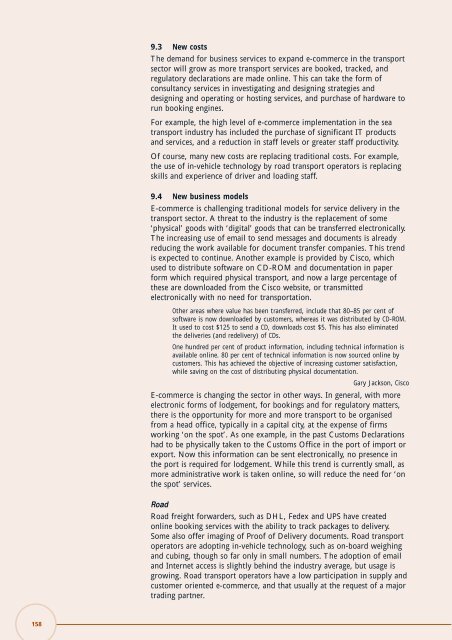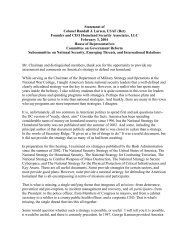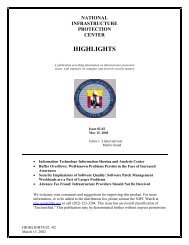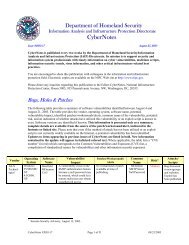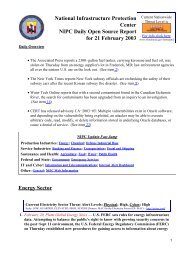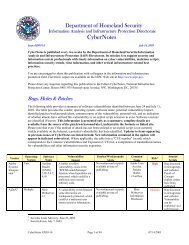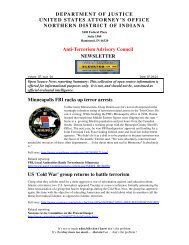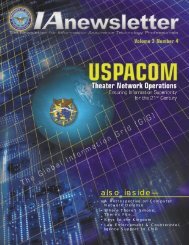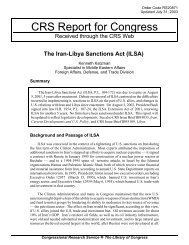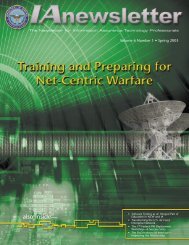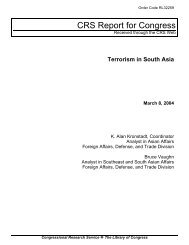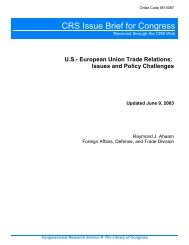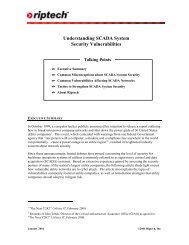beyond pt 0 23/1
beyond pt 0 23/1
beyond pt 0 23/1
Create successful ePaper yourself
Turn your PDF publications into a flip-book with our unique Google optimized e-Paper software.
9.3 New costs<br />
The demand for business services to expand e-commerce in the transport<br />
sector will grow as more transport services are booked, tracked, and<br />
regulatory declarations are made online. This can take the form of<br />
consultancy services in investigating and designing strategies and<br />
designing and operating or hosting services, and purchase of hardware to<br />
run booking engines.<br />
For example, the high level of e-commerce implementation in the sea<br />
transport industry has included the purchase of significant IT products<br />
and services, and a reduction in staff levels or greater staff productivity.<br />
Of course, many new costs are replacing traditional costs. For example,<br />
the use of in-vehicle technology by road transport operators is replacing<br />
skills and experience of driver and loading staff.<br />
9.4 New business models<br />
E-commerce is challenging traditional models for service delivery in the<br />
transport sector. A threat to the industry is the replacement of some<br />
‘physical’ goods with ‘digital’ goods that can be transferred electronically.<br />
The increasing use of email to send messages and documents is already<br />
reducing the work available for document transfer companies. This trend<br />
is expected to continue. Another example is provided by Cisco, which<br />
used to distribute software on CD-ROM and documentation in paper<br />
form which required physical transport, and now a large percentage of<br />
these are downloaded from the Cisco website, or transmitted<br />
electronically with no need for transportation.<br />
Other areas where value has been transferred, include that 80–85 per cent of<br />
software is now downloaded by customers, whereas it was distributed by CD-ROM.<br />
It used to cost $125 to send a CD, downloads cost $5. This has also eliminated<br />
the deliveries (and redelivery) of CDs.<br />
One hundred per cent of product information, including technical information is<br />
available online. 80 per cent of technical information is now sourced online by<br />
customers. This has achieved the objective of increasing customer satisfaction,<br />
while saving on the cost of distributing physical documentation.<br />
Gary Jackson, Cisco<br />
E-commerce is changing the sector in other ways. In general, with more<br />
electronic forms of lodgement, for bookings and for regulatory matters,<br />
there is the opportunity for more and more transport to be organised<br />
from a head office, typically in a capital city, at the expense of firms<br />
working ‘on the spot’. As one example, in the past Customs Declarations<br />
had to be physically taken to the Customs Office in the port of import or<br />
export. Now this information can be sent electronically, no presence in<br />
the port is required for lodgement. While this trend is currently small, as<br />
more administrative work is taken online, so will reduce the need for ‘on<br />
the spot’ services.<br />
Road<br />
Road freight forwarders, such as DHL, Fedex and UPS have created<br />
online booking services with the ability to track packages to delivery.<br />
Some also offer imaging of Proof of Delivery documents. Road transport<br />
operators are ado<strong>pt</strong>ing in-vehicle technology, such as on-board weighing<br />
and cubing, though so far only in small numbers. The ado<strong>pt</strong>ion of email<br />
and Internet access is slightly behind the industry average, but usage is<br />
growing. Road transport operators have a low participation in supply and<br />
customer oriented e-commerce, and that usually at the request of a major<br />
trading partner.<br />
158


